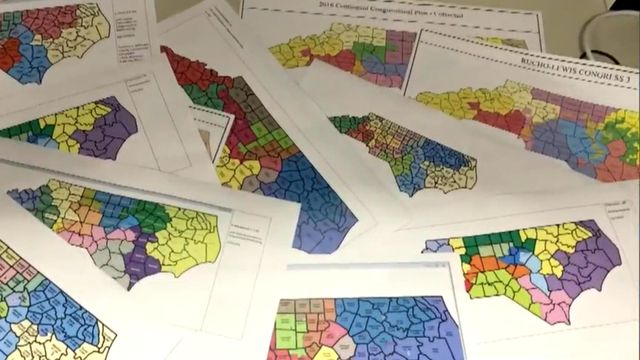Minority lawmakers likely to lose out under partisan NC district maps
A sizable proportion of North Carolina's minority representatives in Congress and the General Assembly are likely to lose their seats under new district maps the Republican-led legislature approved last week.
Posted — UpdatedSen. Ben Clark, D-Hoke, has been drawn into a Republican-favored district that also includes Sen. Danny Britt, R-Robeson. Sen. Ernestine Bazemore, D-Bertie, has likewise been drawn into a heavily Republican district, while Sens. Sydney Batch, D-Wake, and Toby Fitch, D-Wilson, would run in districts that lean Republican.
In the state House, five of the 24 Black members are at risk or certain to lose their seats next year.
Rep. Raymond Smith, D-Wayne, has been drawn into a heavily Republican district, while Reps. James Gailliard, D-Nash, Linda Cooper-Suggs, D-Wilson, Howard Hunter III, D-Hertford and Garland Pierce, D-Scotland, would run in very competitive districts.
The House map also puts Rep. Charles Graham, D-Robeson, the chamber's only Native American member, in a heavily Republican district and Rep. Ricky Hurtado, D-Alamance, the lone Latino in the House, in a very competitive district.
Both Clark and Graham have said they don't plan to run for re-election next year – Graham is running for Congress – but it's unlikely the communities they represent would be able to elect a person of color to succeed them in those districts as they are now drawn.
In the U.S. House, the 1st Congressional District, which Democrat G.K. Butterfield has represented since 2004, was redrawn to make it more Republican. Butterfield is one of only two Black members of North Carolina's congressional delegation.
Republican legislative leaders said repeatedly last week, as they rolled out and approved the new maps, that they didn't use any racial or voting data in drawing the maps. Under the federal Voting Rights Act, new district maps must protect existing minority-majority districts, but the GOP lawmakers said North Carolina doesn't have racially polarized voting, so they didn't have to stick to that requirement.
"Since political data was not considered in the map-drawing process, we would have no way of knowing the political leanings of the districts," Lauren Horsch, a spokeswoman for Senate President Pro Tem Phil Berger, said Monday in an email to WRAL.
Related Topics
• Credits
Copyright 2024 by Capitol Broadcasting Company. All rights reserved. This material may not be published, broadcast, rewritten or redistributed.






